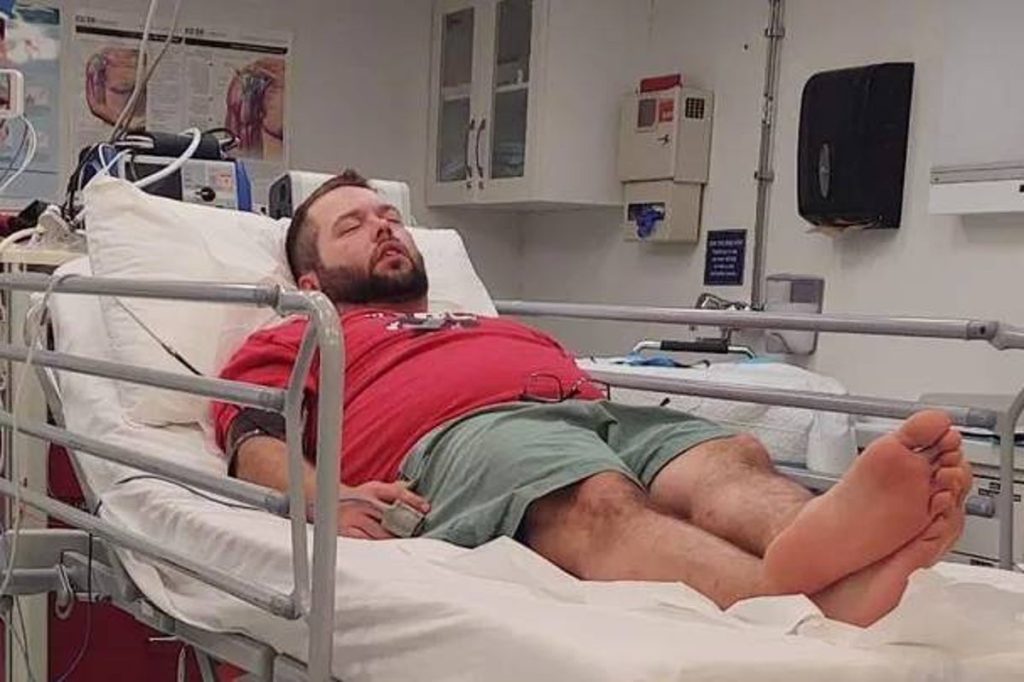Vincent Wasney, a man who experienced seizures aboard a Royal Caribbean cruise in 2022, was shocked to receive a medical bill of over $2,500 after being evacuated to a rescue boat. He had three seizures on the Independence of the Seas liner and underwent a blood test and received medication before being informed of the hefty bill. Despite informing the crew that he couldn’t afford to pay that much, he was asked by a cruise employee how much he could pay. His fiancée, Sarah Eberlein, questioned whether they were being held hostage due to the seriousness of his medical condition.
In order to pay the bill and be allowed to disembark from the cruise ship, Vincent and Sarah had to drain their bank accounts and max out a credit card. Even after doing so, they still needed an additional $1,000 to cover the full cost of the services provided. Ultimately, they were permitted to leave the ship without paying the entire bill upfront, and the couple’s credit card was overdrafted to cover the remaining amount. It is reported that Royal Caribbean has been contacted for comment on the situation, but has not yet responded.
According to Royal Caribbean’s terms and conditions, guests are required to pay in full for any expenses incurred during their trip, and the company does not accept land-based health insurance plans. They recommend that guests consider purchasing travel insurance before embarking on a cruise. Vincent and Sarah did not have health insurance or travel insurance when they set sail on their Caribbean cruise, which resulted in them acquiring thousands of dollars in medical debt due to the services provided onboard and additional doctor visits on land.
In an effort to reduce their financial burden, the couple raised $2,690 through a GoFundMe campaign and a Florida hospital lowered their bill after learning that Vincent was uninsured and had a history of seizures. It is estimated that approximately 14 million people in the US, or six percent of adults, owe more than $1,000 in medical debt, totaling $220 billion collectively. Last year, 8.4 percent of Americans lacked health insurance, according to the CDC. The situation highlights the financial strain that can result from unexpected medical expenses, especially for individuals who are uninsured or underinsured.
Vincent and Sarah’s experience serves as a reminder of the importance of having adequate insurance coverage, including health insurance and travel insurance, to protect against unexpected medical costs while traveling. The couple’s struggle to pay their medical bill highlights the challenges faced by many Americans who are burdened by medical debt. Despite their efforts to fundraise and negotiate with healthcare providers, they were still left with a significant amount of debt. This story sheds light on the broader issue of healthcare affordability and the impact of medical expenses on individuals and families across the country.


